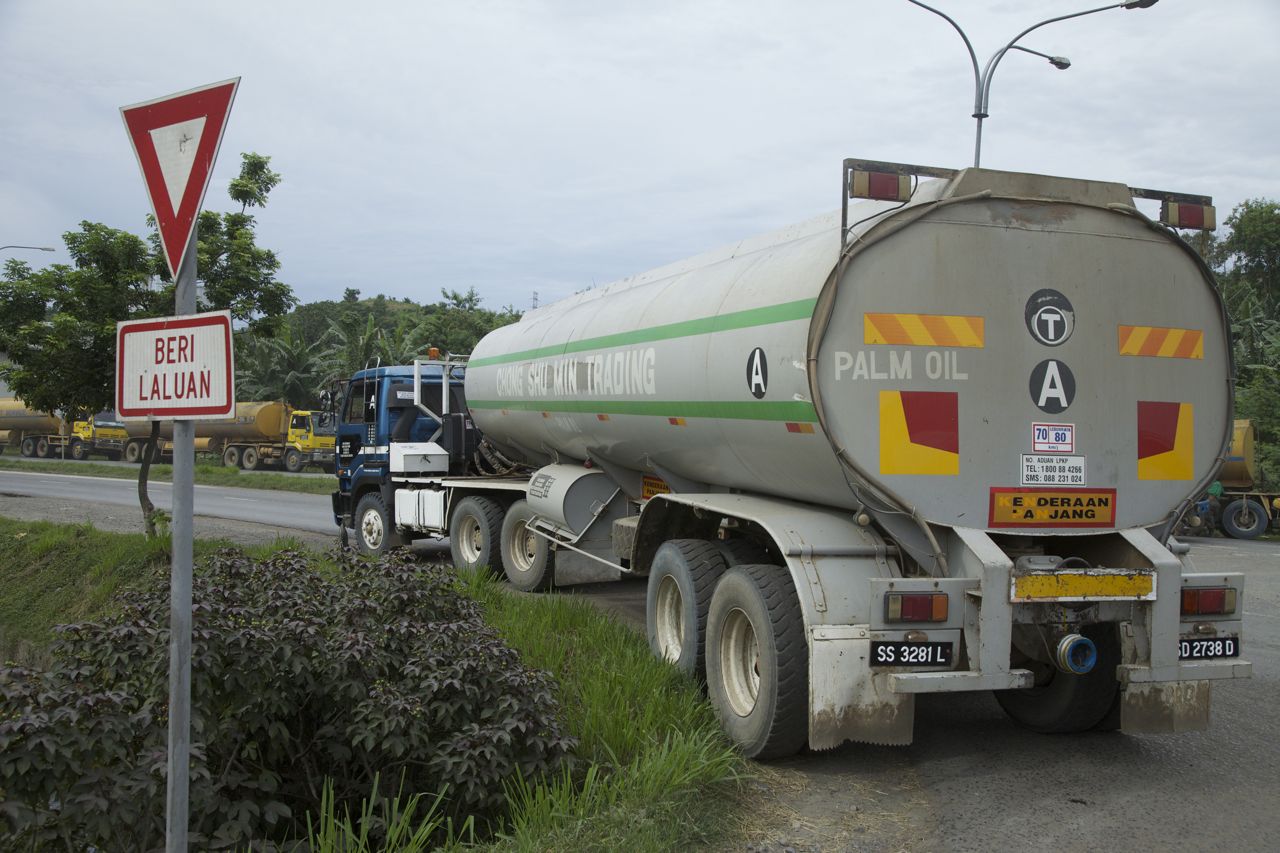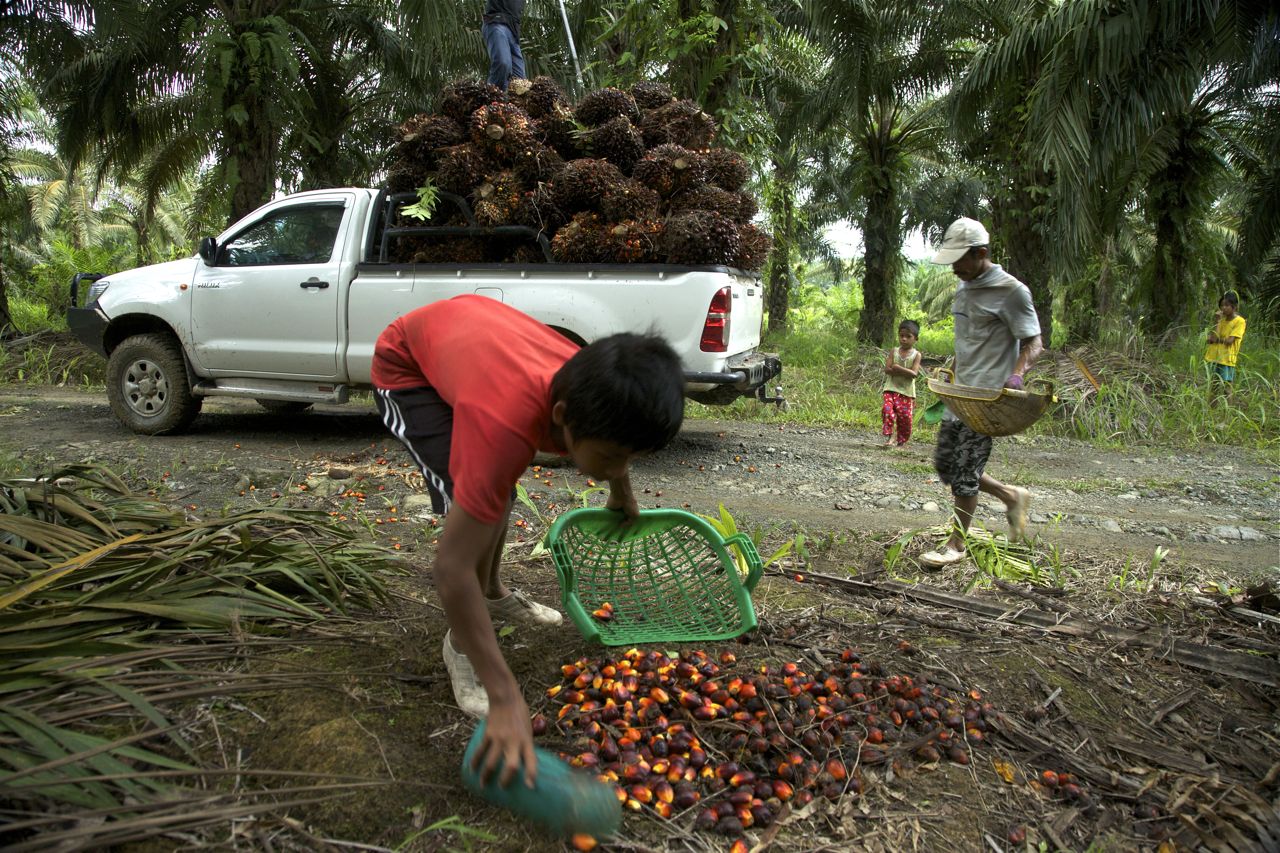
When a gang of pirates washed up 25 years ago, Lahad Datu was just another lawless corner of Malaysian Borneo. Locals recall how their ill-prepared police force was nowhere to be seen as the criminals shot their way into the town's only bank, in broad daylight, walking out with sacks of cash and leaving behind a trail of bodies.
That was then. Once a forgotten backwater, the city has seen its fortunes change rapidly thanks to a rising global demand for palm oil and palm-based products, produced from the plantations that blanket the surrounding countryside. Over the past 15 years the population has doubled; downtown real estate prices have quadrupled; gleaming business-class hotels and fast-food franchises line newly paved roads that are monitored day and night by squad cars. In the middle of a busy traffic roundabout in the city center, a gilded palm tree stands as a symbol for the government-led campaign to transform a region that has lagged far behind Malaysia's industry-rich Western peninsula.
"Life here used to be much different; it was a rough kind of place," says Tammay Bin Inton, 58, a community leader for whom the days of violent street crime and power outages are a not so distant memory. The 30-year resident sat with a group of friends at a popular Indian teashop, talking football over cups of milk tea and samosas. With some pride, he noted that after many years spent in Kota Kinabalu, eastern Malaysia's largest city and commercial center, both of his children had recently moved back to start projects of their own and take advantage of the boom. "The quality of life here has improved tremendously," he says. "Business is good."
South of town, lines of tanker trucks deliver crude palm oil to a sprawling, state-owned refinery complex where fresh lots have been set aside for potential investors. Provincial officials hope that a deep-water port currently under construction nearby will position the region to be a top exporter of biodiesel, if and when overseas demand surges. Either way, with government plans to double the overall area under cultivation by 2020, the prospects of Lahad Datu's inhabitants are poised to get brighter.
Bin Inton and company like what's coming. But change the subject to the migrant laborers who work the plantations that keep the tankers revving around the clock, and the mood at the table sours a bit. With a passing mention of the vital role legions of Indonesians and Filipinos play by filling back-breaking plantation jobs for a pittance, the men grumbled vaguely about an increase in drunken behavior ("...the migrants are causing public disturbances"); the erosion of local culture and traditions; and the threat they posed to local employment prospects ("...what about the locals?").
That migrants do work most Malaysians would never consider does not occur to anyone. Nor does it seem to register that, without legal documents, they tend to avoid authorities at all costs. "The foreigners must be controlled. They are stealing jobs… Those that don't have documents should be kicked out of Malaysia," says Arnan Angkut, 50, a contractor. But what about those who have toiled for years on remote plantations under harsh conditions? Surely their children deserve access to health care and an education given their parents' labors on behalf of the national economy? He relented, slightly. "That's up to the bosses (of the plantations). They can take care of their workers as they see fit. We don't want to pay for anything."
His take was echoed by everyone at the table that afternoon. The overriding sense of mistrust bordered on paranoia. It made me wonder if their fears were borne out of near-total lack of exposure to the migrant worker community. They simply did not come into town.
It was several days later that I came across an interesting item in the Business Times newspaper: Malaysia is losing billions in ringgit or tens of millions of dollars each year due to a shortage of plantation workers. In fact, to avoid massive losses and hit target output goals, the Malaysian Palm Oil Board estimated that 40,000 additional workers needed to be hired, and fast. The article pointed out that many oil palm planters are mechanizing agricultural practices wherever possible and offering better wages in the estates across the region.
"Despite this," the article continued, "many locals continue to shun plantation jobs." Officials lamented the loss of potential tax revenues and vowed to get approval for extra foreign workers. No mention was made of incentives that might be offered to retain existing Indonesian and Filipino workers now trickling out of the country. The irony, it seems, is lost on everyone.
- Document




